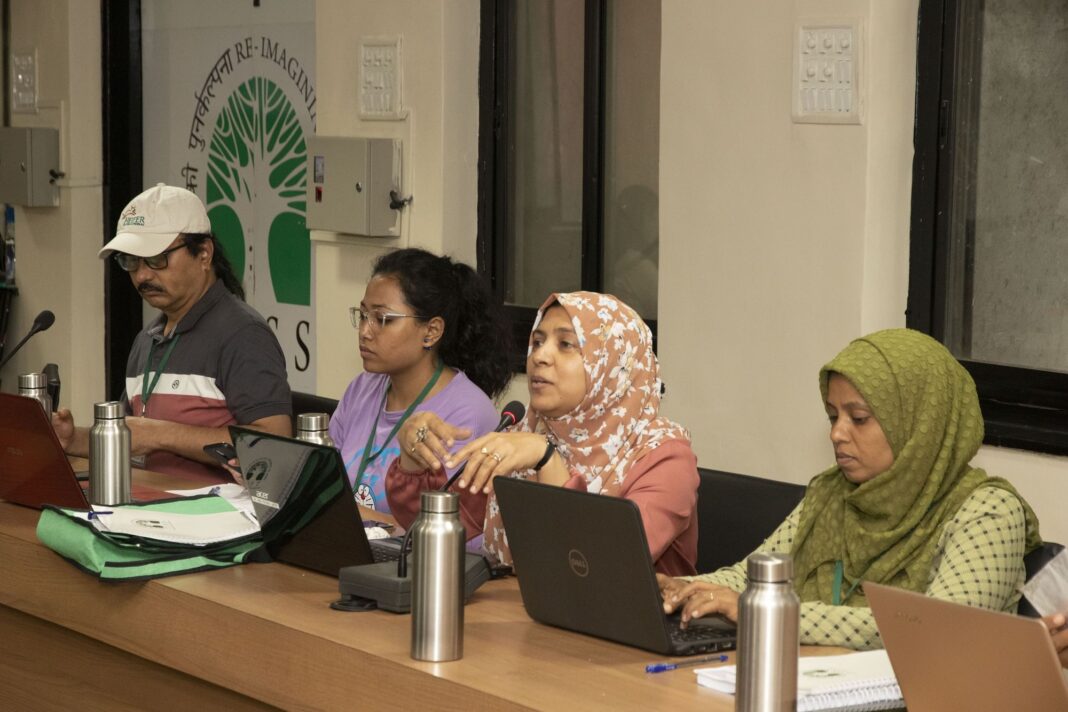With collaborations between Indian and Western Universities gaining momentum over the past few months, an approach that brings in stakeholders closer to home has been initiated by the Centre of Excellence in Teacher Education (CETE) at the Tata Institute of Social Sciences. What was the purpose of bringing together South Asian countries?Representatives, from South Asian countries, who often face similar changes with regards to education in their respective nations came together to participate in CETE’s global field action project on “Multimodal Approach to Teacher Professional Development (MATPD) in Low Resource Settings”, which aims to address urgent need to address the gaps in the professional development of teacher educators and teachers in South Asia, particularly in response to the requirements of the evolving educational reforms. The initiative, which is funded by the International Development Research Centre in Canada, has Villa College, Maldives as the lead partner for the proposed innovation and Swedish Committee of Afghanistan as an implementing partner.
CETE, which is conducting professional development sessions for more than 45 fellows through the South Asian Educators (SATE) Fellowship from June 28-July 6, is hosting fellows and experts from Maldives and Nepal at Tata Institute in Mumbai. The project, which focuses on ‘A Multimodal Approach to Teacher Professional Development for Low Resource Settings,’ had fellows and experts from universities and institutions in Maldives and Nepal engaging with each other and with the faculty members, who are a part of Centre of Excellence in Teacher and Education. Fellows from Maldives and Nepal, who had interests in subjects ranging from ICT Information, Communication Technology, and Literature, discussed and asked questions on the aspects and future of the partnership between CETE and institutions in South Asia in further.
TISS faculty speaks on the importance of the sessionsBeing the first day, an inauguration of the event was conducted which was addressed by Prof. P. K.
Shahjahan, Professor of Social Work and Dean, Academic Affairs at TISS. “MATPD’s engagement in the South Asian context is significant as it will introduce the fellows to action research. Events like these sensitise educators to engage with student realities,” said Prof.
Shahjahan to the audience present during the inauguration. Dr. Ruchi Kumar, CETE, TISS, Co-Principal Investigator, said, “MATPD uses innovative methodologies for professional development of teachers and fosters communities to create social change,” while Prof.
Ajay Singh, Associate Professor, Indira Gandhi National Open University, stressing on the importance of such collaborations said, “only when educators of different nationalities meet, will they be able to understand diverse perspectives and find solutions. ”Insights shared by representatives from Maldives and NepalField mentors and experts, along with fellows from Maldives and Nepal, who have worked with government agencies were also present during the event and shared their insights on the various aspects of education in South Asia. “Maldives focused on a new curriculum in 2015 that put its attention on pedagogy, student-centred assessments, etc.
For grades 1-6 we focused on formative assessments, which helps teachers and students pivot their strategies and gives opportunities for students to implement the feedback they have received. While the summative assessment was conducted for grades 7-8, which often occurs at the end of the learning process and provides a final evaluation for concept knowledge,” said Aishath Naseer, a senior curriculum development analyst associated with the National Institute of Education (NIE) in the capital of Maldives, Male. “The main vision of our curriculum is to prepare students for life, thus the integration of ICT is important for countries such as Maldives, Nepal, and India.
Maldives in research with UNICEF found gaps in education post-Covid and to mitigate the effects, relied on resources that involved digitizing education as every student was provided with a tablet. Teachers were also trained in the skills of Google Suite as they lacked the expertise needed during the pandemic,” added Azeema Fathimath, who is also a senior curriculum development analyst. In taking approaches, during the Covid pandemic, that aimed to help students in Nepal, the curriculum officer at Curriculum Development Centre in Nepal, Khil Narayan Shreshtha explained how scaling down the curriculum, which was a common practice in South Asia during the peak of the pandemic, to ease the pressure off the students proved to be significant.
“Subjects that let’s say primary students can learn in secondary classes, were cut down so that students and teachers are at ease with the learning process,” said Mr. Khil Narayan, who doesn’t encourage online classes and added that more alternatives should be explored. “Self-learning, community learning are important concepts that students were encouraged to do once or twice a week, especially since students in remote areas were deprived of online activities,” said Khil Narayan who added that collaboration between places of learning between India and Nepal can also help develop a common approach towards teacher development.
“Nepal and India can learn from each other a lot when it comes to education. For example, Nepal adopted the multi-grade model, which proved to be useful in certain districts. Nepal can learn a lot from India’s research-based activities as we are still taking small steps in the field.
Overall, I think since the countries are so close geographically and culturally, more exchanges should be encouraged. Nepal has recently focused on teaching faculties, project designing, etc. which has seen successful results and can be a model in the future for other countries,” added Mr.
Khil. The fellows and experts from Maldives and Nepal further held a session on the issues and challenges of teacher professional development, which discussed the design and implementation of TPD to bring synergy between teachers, institutes, and schools. Another session on understanding a problem in detail and conceptualising action research was also conducted, with interactive sessions between the participants later on in the day.
“Indian students contribute $8 billion to our economy,” says US Consul General on Student Visa Day.
From: freepressjournal
URL: https://www.freepressjournal.in/education/south-asian-educators-aim-to-address-gaps-in-professional-development-at-tiss-mumbai



